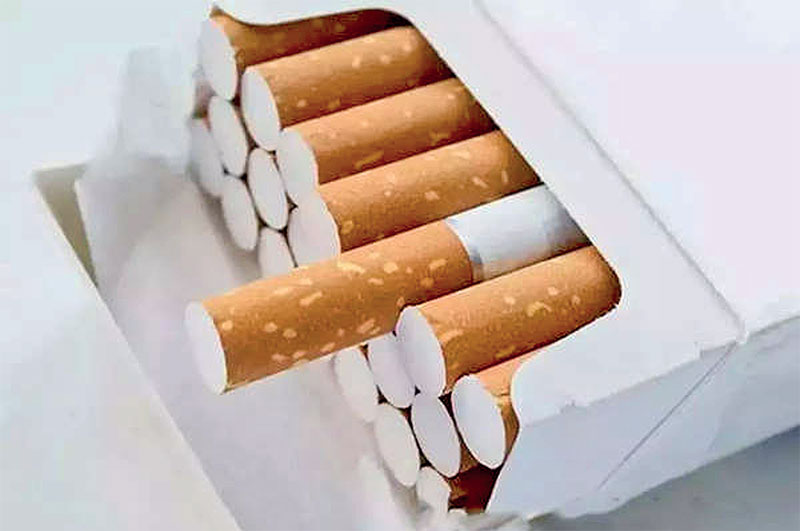Wednesday Feb 25, 2026
Wednesday Feb 25, 2026
Tuesday, 21 February 2023 00:05 - - {{hitsCtrl.values.hits}}

By Kumar Ranaweera
Sri Lanka is the anti-tobacco activist’s dream destination. In a dark market with 80% graphic health warnings on packs and restrictions on sales; for what was already the most expensive cigarettes in the world – the Government last month turned up the heat with a further excise hike of 20% on tobacco and alcohol products. For a daily wage earner, smoking just one cigarette takes close to 10% of his earnings in a day.
In effect, Sri Lanka is the most restrictive market for cigarettes in the world. So, where does it go from here? Before Sri Lanka, Bhutan held the mantle for the most prohibitive conditions with a complete ban on sales imposed in 2010. But it reversed that decision in 2020 after it spawned a thriving black market that caused significant losses to the Government and a spike in crime. Sri Lanka too poses a thriving black market, as smugglers are drawn to the promise of profits due to the excessive tax. As per a Research Intelligence Unit (RIU) report, Sri Lankans puff over 540 million smuggled cigarettes annually causing Rs. 32 billion in losses to the Government. Bhutan presents ample evidence on how counterproductive excessive regulations can turn out to be, and Sri Lanka too should take good note.
For all its hype on regulations to curb cigarette smoking, policymakers are mum on the growth and impacts of the beedi trade, which is a far greater market than cigarettes. Sri Lanka’s beedi trade is completely unregulated and undertaxed, and producers have mushroomed all over the country to take advantage of smokers downgrading to beedi due to the excessive cost of cigarettes. Accordingly, the Sri Lankan public continues to smoke cheaper cigarettes and inhale the ill-effects of tobacco that has evaded quality assurance, whilst the Government earns significantly less revenue due to its short-sighted policies and inaction.
Yet another pertinent point, given the current crisis and Sri Lanka’s focus on tourism as a foreign exchange earner, is the impact of taxes on tourists’ spend. This winter, Sri Lanka has seen a surge of visitors from Europe (primarily Russians), and more are expected from China and India. A common trait amongst travellers from these regions is that they are heavy smokers. Smoking incidence across these three regions is over 26%. Accordingly, how would a high price regime on tobacco products impact tourists, when the average daily spend of tourists in Sri Lanka is not more than just $ 20. Sri Lanka, as a destination, must adopt a more cohesive approach to its tax policy and enhance categories identified as key income earners, and for tourism, tobacco is a vital player.
According to reports from Health Ministry officials, the regulatory body envisages a tobacco tax formula that will ensure an annual price increase on par with inflation – which currently sits above 50%. They added that despite the latest increase, the Government will fall short of its revenue target and envisages increasing taxes by over 100%. The recent spate of increases has already resulted in a drop in volume according to Sri Lanka’s tobacco company. How a further price increase this year, without considering the impact on volume, would enhance Government revenue by a projected Rs. 48 billion beggars belief.
Moves of this sort will simply put Sri Lanka on a path to Bhutan’s tried and tested experience and cause irreversible damage to the country’s law and order and public health. Sri Lanka’s crisis is partly because of its aversion to practicing pragmatic policy and heed lessons from markets around the world. Our policymakers have a penchant for ignoring the obvious and very visible truths, and instead espouse policy that attracts cheers on a political stage. Much like they are blind to the thousands of Sri Lankans puffing daily on beedis and smuggled cigarettes.
(The writer is a Research Associate at a leading audit firm in Sri Lanka.)